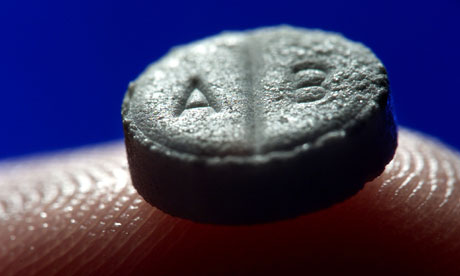Speak Out About Psychiatry wants to change the way mentally ill people are treated in the UK
The Guardian – July 25, 2011
 I am sick of seeing friends who are seriously mentally distressed neglected and damaged by mainstream psychiatry. I am fed up hearing about people being detained, locked up and forced to take damaging medication before anyone has found out why they are distressed. I am angry about children being forced to take addictive psychoactive drugs by health professionals because no one could be bothered to work out why they are playing up. I met some others who wanted to change things and together we formed an organisation called Speak Out Against Psychiatry.
I am sick of seeing friends who are seriously mentally distressed neglected and damaged by mainstream psychiatry. I am fed up hearing about people being detained, locked up and forced to take damaging medication before anyone has found out why they are distressed. I am angry about children being forced to take addictive psychoactive drugs by health professionals because no one could be bothered to work out why they are playing up. I met some others who wanted to change things and together we formed an organisation called Speak Out Against Psychiatry.
Speak Out Against Psychiatry is a group of service users, carers and advocates with direct experience of the psychiatric industry. We know that people who are mentally distressed need compassionate understanding and intense social support. We know that there have been many successful units around the world that have helped people resolve their problems with little or no medication. They have been relatively cheap and successful yet they are not being taken up in the UK. Why not?
Take Western Lapland, in Finland. There, the mental healthsystem is based on a method called Open Dialogue: lots of long conversations with family and friends. It has the best outcomes for first episode psychosis in the developed world. About 80% of participants are back at work or training within two years. Very little medication is used. These results should be the envy of the medical professional yet it is mainly ignored. Similarly, the Family Care Foundation in Gothenburg, Sweden, allows seriously disturbed people to live with rural families for a year or more. They get therapy and the family can regularly talk over how things are going. It gets people off medication, a frightening contrast with the standard treatment from the NHS.
Here, psychiatrists’ main activity is diagnosis, yet many people do not find this helpful. They find talking about their lives and their symptoms helpful. Yet talking about hearing voices or the unusual ideas expressed by people experiencing psychosis is discouraged by mainstream psychiatry.
Most people who are extremely distressed have experienced immense personal trauma. Two-thirds of people diagnosed with schizophrenia had experienced physical or sexual abuse. Most psychiatrists ignore the evidence and prefer to talk about unproven brain disorders and imbalances in neurotransmitters. So the causes of mental distress are not fed back into wider social policy.
Then there are the drugs. Attention deficit hyperactivity disorder has no scientific basis and concerns about the drug Ritalin, used to ‘treat’ it are well documented. There are other ways of helping children who are in conflict with their parents and teachers that do not use potentially addictive medication. Equally, the prescribing of major tranquillisers such as Haloperidol to elderly people in hospital and nursing homes can be dangerous yet is becoming standard practice instead of developing staff skills in dealing with people experiencing dementia. Meanwhile, anti-depressants may be no more effective than a placebo. The serotonin hypothesis of depressionis rubbish. It is a marketing ploy by drug companies. Anti-depressants are potentially addictive and sometimes dangerous, yet one in three women take them some time in their lives. On top of this, electroconvulsive therapy is still used yet there has been ample research showing its dangers and it is just about useless.
Speak Out Against Psychiatry is inviting people to come along at 4pm on Wednesday 27 July, outside the Royal College of Psychiatrists, Belgrave Square, London, to tell us about their experiences of the damaging treatment they have received. We want to hear your stories and we want the Royal College to hear them too.
After the Speak Out we are going to Hyde Park for a picnic and to discuss our next move. I repeat, all the evidence shows that mainstream psychiatry and psychiatric medication is a waste of public money. There are better ways of helping people who are mentally distressed and we need to start using them.


SHARE YOUR STORY/COMMENT